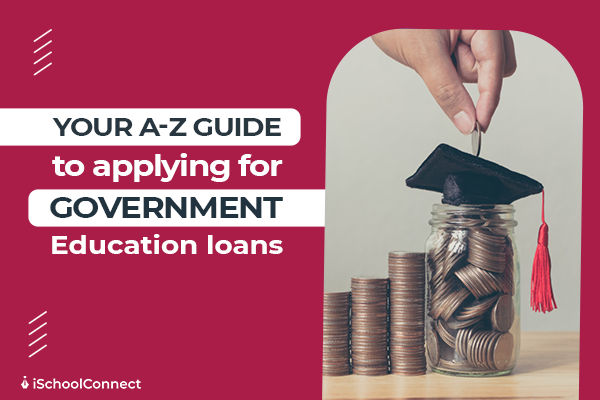Table of Contents
Deciding to take an education loan for MBBS abroad is a big decision. You’re worried about how huge the amount is, if you’ll be able to repay the loan, what the process is like, and whom to approach. Don’t worry — as long as you have secured admission to a renowned university, your loan application process will go smoothly. All you have to do is follow this guide step-by-step. Good luck!
Before you take the loan
Doing your MBBS abroad is not cheap, especially if you’re planning to study in an English-speaking country like the US, the UK, Canada, or Germany.
The fee for studying MBBS is between 2 and 3 crores in these countries. And it can range from 25 to 40 lakhs if you’re looking at colleges in the Philippines, Russia, or Ukraine.
Given that
- The fee for studying in English-speaking countries is exorbitant and
- Institutions in less-renowned countries are not preferred by Indian lenders
Banks are often reluctant to disburse unsecured loans to MBBS students looking to study abroad. Which means you cannot apply for an education loan for MBBS abroad if you do not have any collateral.
Apart from this, the bank you take the loan from will have a set of eligibility criteria for applicants. Some of the common ones are listed below
- You should be a citizen of India.
- You should be 18 years of age or above to be able to take the loan in your name.
- A strong academic record.
- Admission letter from a foreign medical university.
- Documents proving that the Medical Council of India recognizes the university.
- Other criteria (if any) set by the bank to determine the strength of your profile.
How to get an education loan for MBBS abroad

- The first step to getting an education loan for MBBS abroad is to figure out exactly how much you’ll need. Factor in the tuition fee, the cost of living, travel, food, flight tickets, and other miscellaneous expenses. And see how much you’re likely to get from scholarships, fellowships, grants, and assistantships abroad. This should give you a ballpark figure.
- Next, see which banks you can apply to for a loan. Check their eligibility criteria while also considering factors such as moratorium period and loan margin.
- Approach the bank and fill out their application form. Make sure to provide all the necessary documentation along with it.
- Once your loan is approved, the bank will disburse the amount in installments, as required by the university.
Documents required
The documents required by the bank will serve the purpose of strengthening your application. If you have a solid academic background, admission from a renowned university, reliable collateral, and a good financial record, your loan will be approved in no time.
While the exact list of documents required by each bank is different, this list should give you a general idea-
- Bank application form.
- Passport-size photographs.
- Photo ID.
- Proof of residence.
- Academic documents and scores from competitive exams.
- Proof of admission.
- Last six months’ bank statements.
- Proof of income (your/your guardian’s payslips and ITR forms).
- Proof of collateral.
- Relevant technical and legal documents.
Top loan providers

There is a hoard of public and private banks and NBFCs providing education loans for MBBS abroad.
Public banks
Public banks like SBI and Bank of Baroda offer lower interest rates and have greater chances of approving your loan. However, their document processing time is longer than that of other banking institutions. It’s best to apply 20-25 days in advance for your education loan here.
You can approach-
- SBI
- Punjab National Bank
- Bank of Baroda
- Union Bank of India
- Bank of India
Private banks
Unlike public banks, private banks like HDFC and Axis process their education loans within 7-10 days. However, their interest rates are on the higher end, and their acceptance criteria are way more stringent.
You can approach-
- HDFC
- Axis
- ICICI
- Kotak
- Indusland
NBFCs
NBFCs like Avanse are a great option for students looking for unsecured loans and short-processing times. They do not require heavy documentation and rely on your guardian’s income and CIBIL score. However, it’s important to note that their interest rates are higher than the rest.
You can approach-
- Credila
- Avanse
- Indian Student Loan Program (ISLP)
- Global Student Loan Corporation (GSLC)
- Power Finance
Important things to remember when taking a loan
Applying for an education loan for MBBS abroad is a complex process. You have to consider all the factors listed above – loan amount, loan type, banking institution, documents, and application process – while also figuring out how to increase the chances of your loan being approved.
In this process, it isn’t uncommon to forget the little things that will make the application process (and paying back the loan) easier.
Like
- Your counselor is there to help you. Ask them what are your best options and consider their opinion in high regard.
- Applying for a loan, for any loan, is a long game. If you know you’re going to be studying abroad at some point, make sure to maintain a high CIBIL score. Pay back the loans you already have on time. Always pay your credit card bills on the due date. Pay the EMI installments for your purchases on time. This will definitely increase your chances of getting the loan approved.
- Keep in mind that, at some point, you have to start paying the money back. Understand how the loan you’re taking will affect that by looking at factors like – moratorium period, loan margin, and exchange rate.
- Find ways to reduce the amount of the education loan you have to take. Research and apply for scholarships, fellowships, internships, and teaching/research assistantships at your university. Take your counselor’s help to do this effectively.
Key takeaways
- The fee for studying MBBS is between 2 and 3 crores in these countries. And it can range from 25 to 40 lakhs if you’re looking at colleges in the Philippines, Russia, or Ukraine.
- Banks are often reluctant to disburse education loans for mbbs without collateral. Which means you cannot apply for an education loan for MBBS abroad if you do not have any collateral.
- If you have a solid academic background, admission from a renowned university, reliable collateral, and a good financial record, your loan will be approved in no time.
- Collect the documents listed above as you apply for an education loan for MBBS.
- There is a hoard of public and private banks and NBFCs providing education loans for MBBS abroad. Read the descriptions above to choose which one suits you best.
- Keep in mind that, at some point, you have to start paying the money back. Understand how the loan you’re taking will affect that by looking at factors like – moratorium period, loan margin, and exchange rate.
Like this blog? Read Education Loan for Abroad Studies: Collateral vs. Non-collateral!
FAQs
1.How much education loan can I get for MBBS?
Ans: Most banks are ready to provide unsecured education loans up to 7.5 lakhs. However, a loan greater than that will solely depend on how much collateral you have to offer.
2.Education loan for MBBS Quora.
Ans: Hundreds of answers on Quora warn students against applying for a huge loan if they haven’t gotten into a renowned university. It’s sound advice. If you’re going to study in the US, the UK, or Canada, your chances of securing a high-paying job are high, which means your loan will get sanctioned easily. But if you’re applying to study in, say, Ukraine, it might not be a great idea to accrue huge amounts of debt.
3.Does SBI provide education loans for mbbs students?
Ans: Absolutely. SBI provides up to 30 lakhs in education loans for MBBS abroad. They have comparatively lower interest rates than other private banks.







